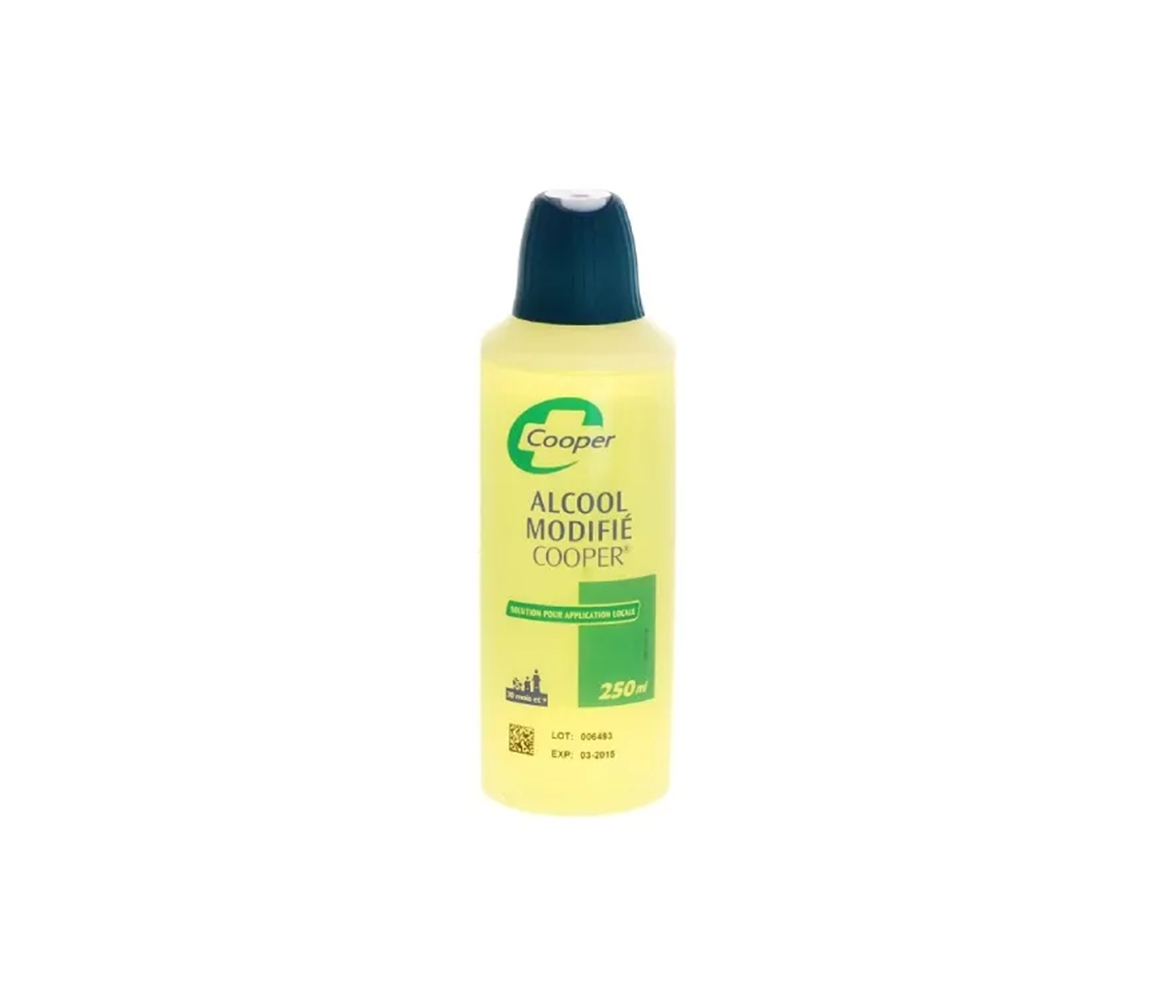


70° alcohol is ideal for cleaning and disinfecting wounds and medical devices.
 Security policy
Security policy
(edit with the Customer Reassurance module)
 Delivery policy
Delivery policy
(edit with the Customer Reassurance module)
Local antiseptics
Alcohol-based local antiseptics are products that contain alcohol, usually ethanol, as the active ingredient to kill or inhibit the growth of micro-organisms such as bacteria, viruses and fungi. They are commonly used to disinfect intact skin before injections, minor surgery or other medical procedures. Alcohol has antiseptic properties due to its ability to denature the essential proteins of micro-organisms, resulting in their destruction or inability to multiply. Alcohol-based antiseptics are fast-acting and are considered effective in reducing the risk of infection.
However, it should be noted that alcohol-based antiseptics are not recommended for disinfecting open wounds, burns or other skin lesions, as alcohol can be irritating and cause a burning sensation. In such cases, it is preferable to use non-irritating antiseptics specifically designed for minor wounds.
When using an alcohol-based antiseptic, it is important to follow the manufacturer's instructions and observe the precautions for use. It is advisable to apply the antiseptic to clean, dry skin, using a sufficient quantity to cover the area to be disinfected. It is also advisable to allow the antiseptic to air dry before continuing with any medical procedure or applying a dressing.
If you have specific questions about the use of an alcohol-based disinfectant or are considering using one, it is advisable to consult a doctor or pharmacist for advice tailored to your situation. Avoid combining a disinfectant with other medicines for the same purpose.
Treating superficial wounds
To treat a superficial wound, there are a number of essential steps to be followed, essentially rules of hygiene. Before handling the wound, make sure you wash your hands thoroughly with soap and water to avoid any further contamination. To clean a wound, gently rinse it with lukewarm water to remove any dirt or foreign particles. You can use a sterile saline solution for more effective cleaning. Avoid using hydrogen peroxide or alcohol, as these can damage healthy tissue and delay healing. If the wound is bleeding slightly, apply light pressure with a clean piece of gauze to help stop the bleeding. If the bleeding persists or is heavy, consult a doctor. Finally, apply a disinfectant such as Cooper Modified Alcohol for superficial wounds. If the wound does not heal in the usual time, worsens or is deep, it is best to consult a healthcare professional for appropriate assessment and treatment.
Once the wound is clean and dry, you can apply a topical antiseptic to help prevent infection. Use a disinfectant recommended by a healthcare professional or ask your pharmacist or doctor for advice. To protect the wound from bacteria and external irritants, you can use a sterile dressing or an adhesive bandage. Make sure you change the dressing regularly, at least once a day or more frequently if necessary. Keep an eye on the wound for any signs of infection, such as redness, heat, swelling, pus or excessive pain. If you notice any of these signs, consult a doctor or pharmacist. Finally, to promote healing, it is important to maintain good hygiene, follow your health professional's recommendations for cleaning and dressing the wound, eat a balanced diet and stay well hydrated. If, however, the wound does not heal within the usual timeframe, worsens or is deep, it is best to consult a healthcare professional for appropriate assessment and treatment. It is essential to read the instructions carefully before using the solution, or ask your doctor or pharmacist for advice.